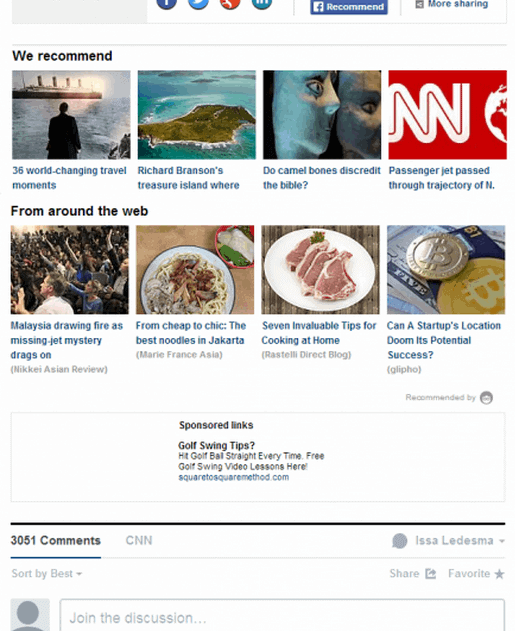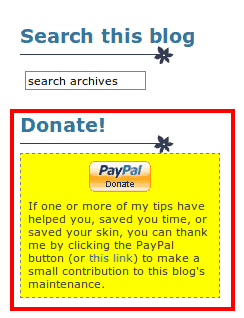
Blogging is a profitable medium. Many bloggers started their blogs with the goal of making money in mind. Some bloggers may have succeeded in acquiring loyal readers and a significant stream of traffic to their sites, but they may still find it hard to convert that audience into income.
Here’s a comprehensive table on the best types of ads for blog monetization, including descriptions, pros, cons, and best use cases:
Table: Best Types of Ads for Blog Monetization
| Ad Type | Description | Pros | Cons | Best Use Cases |
|---|---|---|---|---|
| Display Ads | Banner ads of various sizes placed in different locations on the page | Easy to implement, various formats available | Potential annoyance for users, can lower CTR | General monetization, all niches |
| Native Ads | Ads that blend seamlessly into the style and content of your blog | Less disruptive, higher engagement | More effort to create, may require niche expertise | Content-driven blogs, specific audiences |
| Affiliate Ads | Ads promoting third-party products or services, earning a commission per sale | High-income potential, relevant to the audience | Relies on quality products, low control over ads | Niche blogs with a loyal following, product reviews |
| Video Ads | Video advertisements played before, during, or after your blog’s video content | High CPMs, engaging format | Intrusive if not implemented well, need for video content | Blogs with video tutorials, entertainment niches |
| Text Ads | Simple text-based ads, often used in search results or as contextual links | Less disruptive, easy to blend in | Lower CPMs than image or video ads | Blogs with informational content, news sites |
| Sponsored Posts | Dedicated blog posts promoting a specific brand, product, or service | High earning potential, control over content | Requires time investment, needs brand alignment | Established blogs with strong audience trust |
Additional Considerations:
Finding the best-paying ad networks can be game-changing for bloggers looking to monetize their content effectively. The right ad network can significantly impact your earnings, depending on your blog’s niche, audience size, and engagement levels. Here’s a guide to help you identify the most lucrative ad networks tailored to your blog’s specific niche.
Before exploring ad networks, clearly define your blog’s niche. Different ad networks may perform better for specific content types, such as technology, lifestyle, fashion, food, or finance. Knowing your niche allows you to target ad networks that specialize in or deliver better results for your content area.
Ad networks have varying requirements for traffic volume and audience engagement. Some networks cater to high-traffic sites, while others are more accessible to smaller, niche-focused blogs with engaged readerships. Evaluate your site’s metrics to match with suitable networks.
Consider the payment threshold, payment methods, and support provided by the ad network. A lower payment threshold can be crucial for smaller blogs, while reliable support can help you optimize your ad placements and earnings.
Don’t hesitate to test multiple ad networks to see which offers the best performance for your blog. Monitor your earnings and site speed, and consider your audience’s experience with the ads. Optimization may involve tweaking ad placements, experimenting with different ad formats, or even combining several ad networks.
Ad industry standards and regulations, such as those related to user privacy (e.g., GDPR, CCPA), are constantly evolving. Ensure the ad networks you choose comply with these standards to avoid penalties and provide a safe experience for your readers.
| Ad Network | Best Suited Niches | Pros | Cons |
|---|---|---|---|
| Google AdSense | General, beginner-friendly, most niches | Easy setup, wide reach, contextual targeting | Can have lower CPMs for some niches, less control over ad content |
| MonetizeMore | Various niches, focus on larger publishers | Header bidding, custom solutions, potential for high revenue | Best for experienced publishers, requires hands-on management and technical understanding |
| Raptive | Lifestyle, Food, Home, Parenting, Finance | High CPMs, hands-on management, focus on blogger growth | Requires 100,000 pageviews/month, potential exclusivity requirements |
| InfoLinks | Various | Easy integration, multiple ad formats | Lower CPMs than some competitors, ads can be less aesthetically pleasing |
| Media.net | Contextual ad network, various niches | Good AdSense alternative, decent CPMs | Not as high-paying as premium networks |
| Gourmet Ads | Food niche exclusively | High-quality advertisers, excellent for established food blogs | Limited to food niche only |
| SheMedia | Female-focused niches: Lifestyle, Fashion, Parenting, Food | Strong community, potential for sponsored content opportunities | Smaller network with niche focus |
To experience your full ad revenue potential, check out some of our tips for monetizing your blog with ads:
Often the reasonable number of ad units a blog can contain would be three or more on a page. It is suggested that you max out the allowance Adsense or the other ad networks have given you. This will most likely trigger an instant jump in revenue. And it’s not just because you have multiple streams of ad revenue, but you are putting these ad networks up against each other to compete for the best CPM rate – in your favor! The result? Increased ad revenue.
Contextual link units are a very effective source of monetization because of their flexibility. They can blend well with your content and can be placed anywhere – like at the end of every blog post. Because they are less disruptive than banner ads, they are more user-friendly and when done right – they can lead to more clicks. That’s beneficial for you if you run a CPC campaign on your blog.
Related Read: Check out Adsense’ tip on Making the Most Out of your Link Units.
This Adsense product is an excellent value-add to your site users. Apart from the ads that come out of the search results pages within your site, the search functionality is very light and easy to use for most people. No need for highly technical implementations – you get your own custom search engine right within your website.
While you can’t expect the traffic to these search results to be tremendous, this will definitely ensure that click rates and RPMs will become higher than the rest of your site and will produce some incremental profit for you.
Additionally, when search results are good and relevant, people can bookmark or perform the same query search again just to go back to that relevant ad search result they saw. That means repeat revenue for you.
Long-form content is a good way to keep your readers glued to your article – and that offers an opportunity for you to use ad space within the content area. By having visitors read through engaging long-form content, you have more chances that they will interact more with your ads (i.e. clicking/reading the ads).
Just a word of caution: Keep your ads relevant and unobtrusive to keep user experience at optimum levels. Annoying ads will drive readers away.
The ideal banner sizes to implement would be 468×60 and 234×60 as these will fit into the content section of most blog posts. They can be placed between paragraphs in your blog posts. This type of ads would more likely attract your visitors than those usually placed on common ad areas like the sidebar or footer.
Related Read: Banner Layout Cheat Sheet: Top Banner Placements that Work!
One great example of strategic ad placement is putting your sponsored links between your comment box and your article. Readers are given the choice to continue with the next article offer (by clicking on the ads) or participate in the blog discussion (by writing comments). Whatever choice they make is beneficial for your blog property.
Related Read: Engage and Monetize: How to Win Readers’ Attention while Earning from Ads

Sponsored CAPTCHA is well-loved by advertisers because ads are displayed alongside the human-code verification process. That makes viewing the ads a default on your site. We’ve written about sponsored CAPTCHA as the best monetization idea of the year.
This is where the saying “honesty is the best policy” is most beneficial. Affiliate marketing can work to your advantage not by tricking users into clicking on something that disguises as an interesting link – but actually leads to an irrelevant product page.
If you partner with affiliates, better be transparent with your readers by saying that they can help you create more good stuff by clicking on an affiliate shopping link (say, Amazon) from your site (or from an email you sent) when they feel like shopping. Affiliate partnership works especially when you have gained the trust of your audience. If you are honest with them, there are more chances that they’ll support your income schemes.
This technique may not work for every blog out there. But a lot of bloggers found a good revenue stream from donations because their readers truly find their content useful. Imagine if you are a regular web user and this blog site has got you smitten with its really cool and helpful information. I’m sure you wouldn’t mind throwing a few donations for the blogger for his/her excellent work.

This technique is pretty straightforward. Just place a “Donate” area where people can see a PayPal link. Of course, you would have to set-up a Paypal account first. Here’s how to create your own PayPal donation button: https://www.paypal.com/us/cgi-bin/?cmd=_donate-intro-outside
If you would like to earn more from your blog, why don’t you consider getting the help of expert ad optimizers to increase your website monetization revenue by 55% – 100%? Sign-up to MonetizeMore for a free blog site consultation.

With over ten years at the forefront of programmatic advertising, Aleesha Jacob is a renowned Ad-Tech expert, blending innovative strategies with cutting-edge technology. Her insights have reshaped programmatic advertising, leading to groundbreaking campaigns and 10X ROI increases for publishers and global brands. She believes in setting new standards in dynamic ad targeting and optimization.
10X your ad revenue with our award-winning solutions.